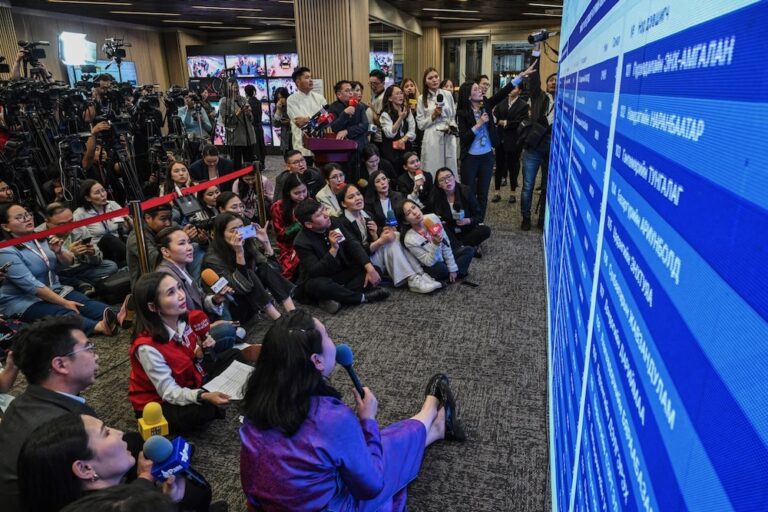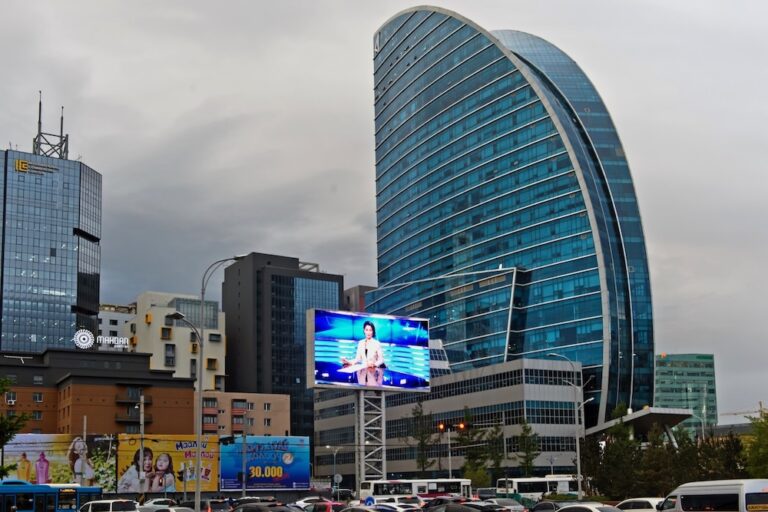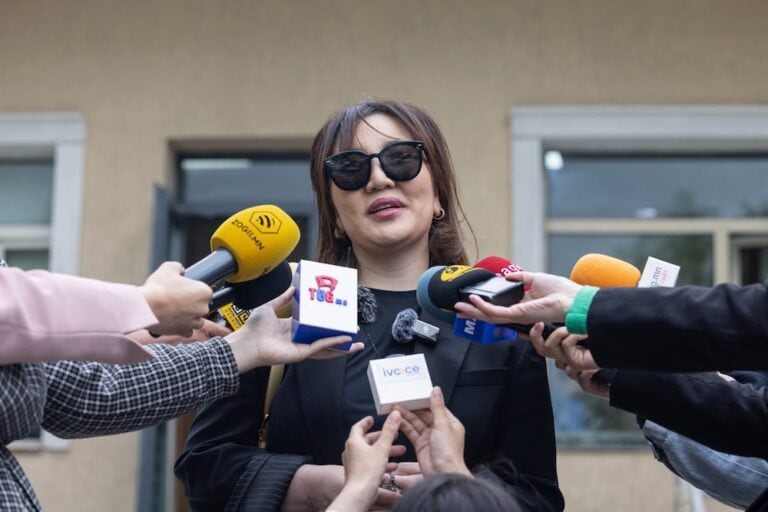Globe International Center said the defamation suit filed by a Mongolian state-owned enterprise undermines media freedom and the public's right to information.
On 22 April 2021, Ulziibayar Sanjaajav, a female journalist for Ugluunii Sonin (Morning Newspaper) daily newspaper, published an article titled ‘Uranium hazards are destroying Dornogovi’s migratory gazelles’ for the newspaper’s section titled ‘Mother nature and responsible mining.’ Based on the article, a state-owned company called Mon-Atom claimed that the newspaper damaged their business reputation by spreading false and misleading information. Eventually, the company filed a civil defamation lawsuit against the newspaper on 18 May 2021 at the Chingeltei District First Instance Court. The company demanded that the newspaper publish a retraction on the cover page and pay 100 million Mongolian tugrik (approx. US$38,065) in compensation.
Such an act by Mon-Atom LLC goes against the Media Freedom Law, which prohibits all types of censorship by stating that “The State shall not control or censor the content of public information” (Section 3.1). In a democratic society, high profile officials, government bodies, including state-owned enterprises, are under constant public scrutiny, and they should be more tolerant to criticism as set out by international standards. Moreover, there is a practice that defamation or injury to the reputation is considered a dispute and to be resolved by court only if one individual injures another’s reputation or a business entity’s reputation is offended.
The amendment to the Constitution of Mongolia made on 14 November 2019 provides that “The citizens shall have the right to know about the environmental impacts of the use of subsoil within their rights to live in a safe and healthy environment”, thereby guaranteeing the right to seek, receive and impart information on specific matters. Within the above right guaranteed by the Constitution, the journalist S. Ulziibayar sought the information in the public interest and provided photo documentation and an interview with a local resident for her article.
Globe International Center condemns the accusation of defamation against the media outlet and the demand of a large amount of money, which could become a form of economic censorship. Such an act can have a chilling effect on the media and could pose a risk of silencing news stories about high-profile officials, withdrawing from fair criticism and encouraging censorship which are all against the public interest.
Established in 1999, Globe International Center is a non-governmental organization that promotes and protects fundamental rights and freedoms, including freedom of expression, and the right to information, advocates for the accountability and transparency of public institutions, and educates the public on and against corruption.



